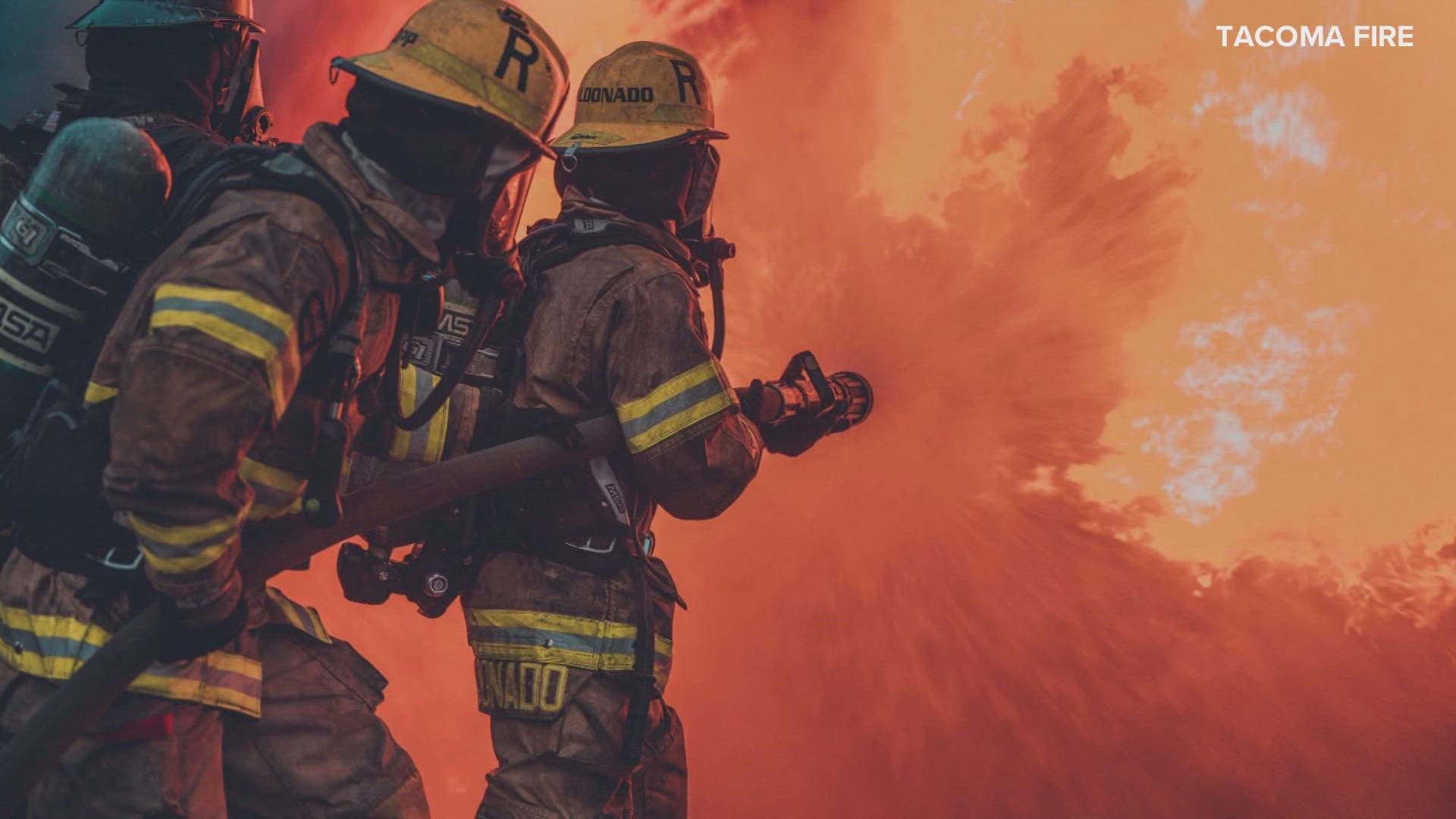TACOMA, Wash. — Firefighters are often portrayed as heroes. They battle the flames, rescue victims of crashes and they go into danger, not away.
But just as often, they're heavily impacted by the job.
Tacoma Fire Chief Tory Green attributes some of the stresses to an increase in call volume in recent years.
"We recognize that many of our employees were suffering," Green said.
The department oversees an area of about 240,000 people, comprising the cities of Tacoma, Fife and Fircrest. On a given day, the fire department ensures that 79 firefighters at minimum are on-duty.
Green said the burdens are heavy, adding that 37% of firefighters across the nation are qualified clinically for post-traumatic stress disorder, or PTSD.
Green, a nearly 30-year veteran with Tacoma Fire who was appointed chief in 2019, said he learned more of his staff was seeking help from the department's peer support team, which provides counseling and mental health support.
In collaboration with the support team and the firefighters' union, Green developed a plan to produce a video to promote mental health awareness.
"The whole point of this video is to really break down the stigma that prevents people from reaching out for help," explained Green.
In September 2021, Green approached Tacoma firefighter Cody Shea, who does videography as a hobby and had produced a short video for the department before.
Shea is a five-year veteran with Tacoma Fire and previously worked as an EMT in Seattle. But he returned to his roots in Tacoma.
"It's a great city,” Shea said. “It's a working-class town, a blue-collar town, at least that was my experience growing up in it.”
Shea interviewed several members of the department and quickly realized he had in front of him a story that would take longer than five to seven minutes to tell.
"I realized very quick that this was a darker side of the job,” explained Shea. “This is something that doesn't get a lot of air time.”
The video grew to become an hour-long documentary titled, "The Call We Carry." It features accounts of what firefighters regularly see on the job.
"We have a front-row seat to trauma every day. So, when people show up to work today, they don't respond to good events. They respond to everyone else's bad events," Green said.
The film was screened among department members and will be publicly screened in October.
For Shea, the project went beyond documenting the experience of his colleagues.
"It immediately sparked my interest because I have a lot of experience with that, with myself and my family members, basically just being a child of the fire service," Shea said.
Shea's parents are retired firefighters with the Seattle Fire Department. They witnessed the same travails of the job, only back then, Shea said they had even fewer resources to seek mental health help.
"The culture that existed in which both my parents were in their prime during the early ‘90s, being firefighters in Seattle was that stigma was in full bore,” Shea said. “If you struggle with things, you didn't really talk about it. You kind of just sucked it up, put on a smile, put on your uniform, and you go back the next day.”
Shea said he hopes his film can let his colleagues know that there are solutions to dealing with the stresses of the job.
"We didn't want to leave people in the darkness. We wanted to show them the light at the end of the tunnel and I think we did that," Shea said.
"The Call We Carry" will be screened at Tacoma's Blue Mouse Theatre on Oct. 4 through 6, at 6 p.m. and 8 p.m. Tickets are free and still available. Click here for more information.
If you or someone you know is in crisis, you can call 988, which is the National Suicide Prevention Hotline. It is available 24 hours a day.

